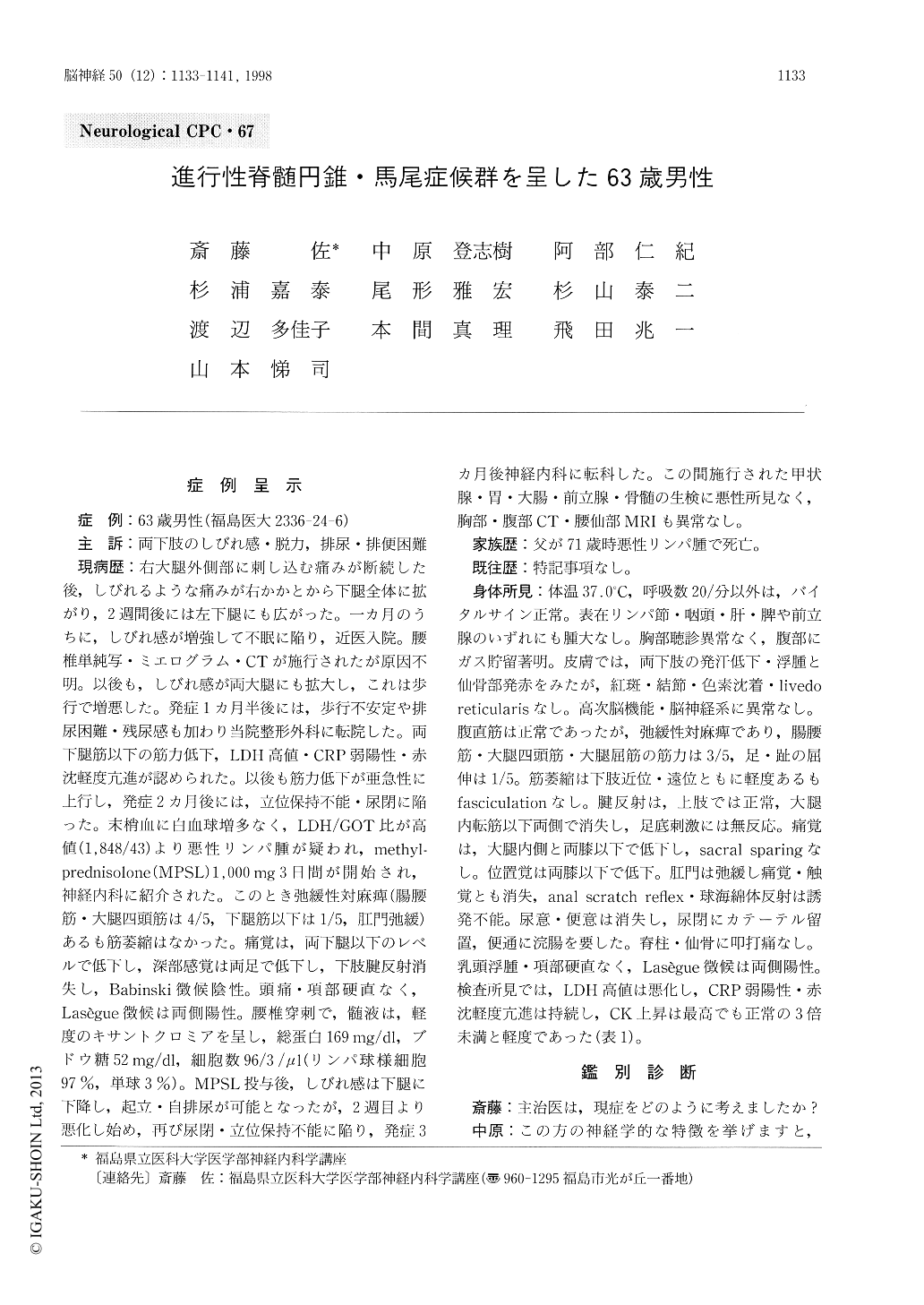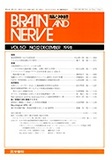Japanese
English
Neurological CPC・67
進行性脊髄円錐・馬尾症候群を呈した63歳男性
A 63-year-old Man with Progressive Cauda Equina/Conus Medullaris Syndrome
斎藤 佐
1
,
中原 登志樹
1
,
阿部 仁紀
1
,
杉浦 嘉泰
1
,
尾形 雅宏
1
,
杉山 泰二
1
,
渡辺 多佳子
1
,
本間 真理
1
,
飛田 兆一
1
,
山本 悌司
1
Tasuku Saito
1
,
Toshiki Nakahara
1
,
Yoshinori Abe
1
,
Toshihiro Sugiura
1
,
Masahiro Ogata
1
,
Yasuji Sugiyama
1
,
Takako Watanabe
1
,
Mari Honma
1
,
Choichi Hida
1
,
Teiji Yamamoto
1
1福島県立医科大学医学部神経内科学講座
1Department of Neurology, School of Medicine, Fukushima Medical University
キーワード:
cauda equina syndrome
,
ascending myelopathy
,
intravascular malignant lymphomatosis
,
angiotropic large-cell lymphoma
,
muscle biopsy
Keyword:
cauda equina syndrome
,
ascending myelopathy
,
intravascular malignant lymphomatosis
,
angiotropic large-cell lymphoma
,
muscle biopsy
pp.1133-1141
発行日 1998年12月1日
Published Date 1998/12/1
DOI https://doi.org/10.11477/mf.1406901375
- 有料閲覧
- Abstract 文献概要
- 1ページ目 Look Inside
症例呈示
症例:63歳男性(福島医大2336-24-6)
主訴:両下肢のしびれ感・脱力,排尿・排便困難
A 63-year-old man, whose father died of malig-nant lymphoma, developed subacutely cauda equina/conus medullaris syndrome progressed over 3 months. Initial radicular pain, ascending motor and sensory paralysis without sacral sparing, vesicorectal dysfunction were similar with signs of spinal dural arteriovenous fistula. However, mild inflammatory signs, raised serum LDH, predomi-nantly of LDH 3, lymphocytic pleocytosis and ele-vated beta 2 microglobulin in CSF suggested neu-rolymphomatosis. It was not supported, however, after CSF immunocytochemistry, myelogram, CT, Gd-MRI and Ga scan.

Copyright © 1998, Igaku-Shoin Ltd. All rights reserved.


